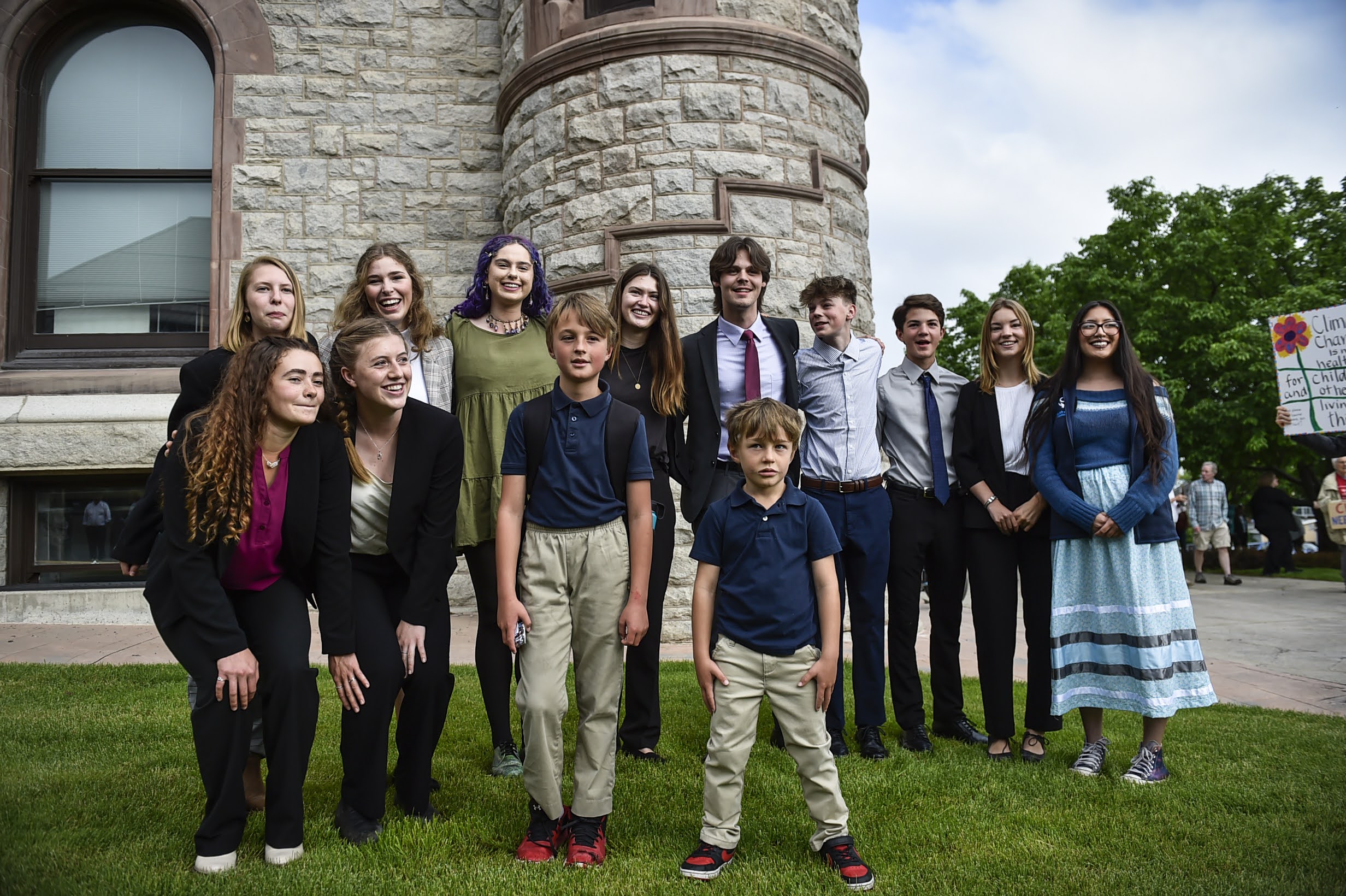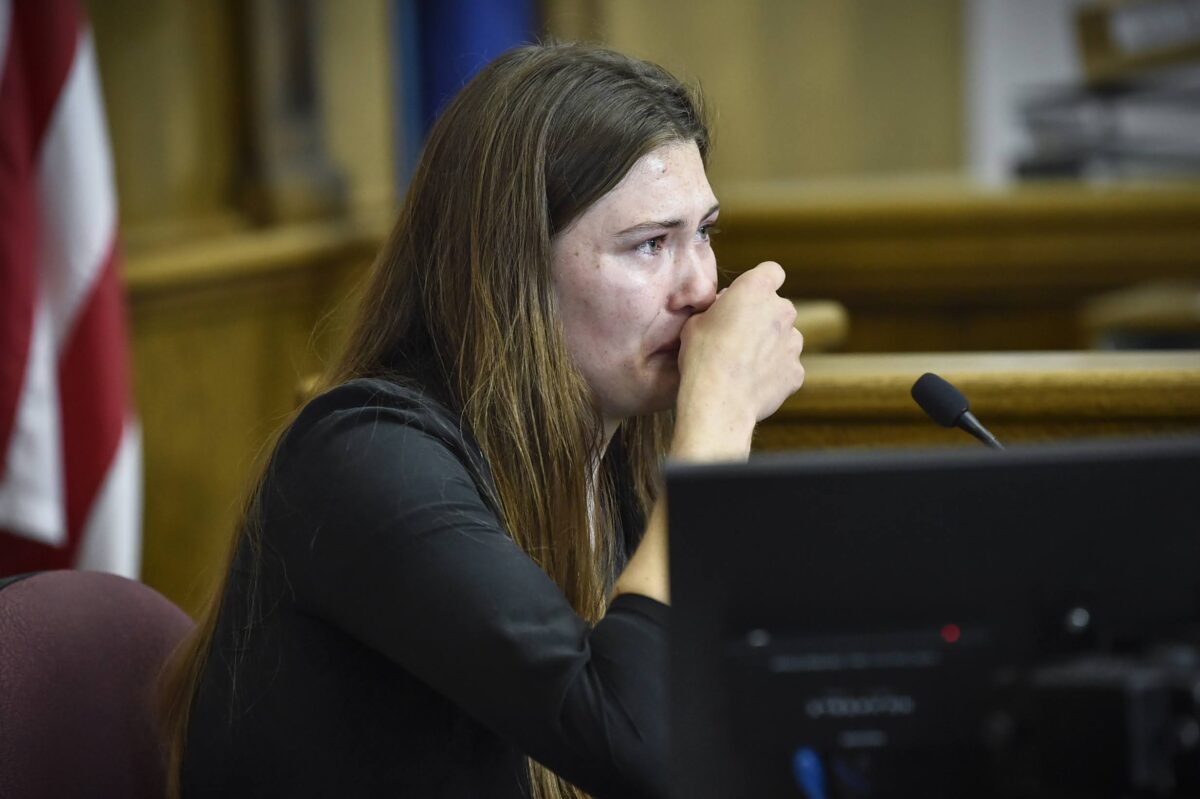Climate Change Lawsuit Slated for Oral Arguments Before Montana Supreme Court
Attorneys for the state of Montana and 16 youth plaintiffs on Wednesday will present their arguments in the high-profile constitutional climate change lawsuit, which the state appealed after a district court ruled in favor of the plaintiffs last year
By Micah Drew
The Montana Supreme Court on Wednesday will hear oral arguments in the appeal of the youth-led constitutional climate lawsuit Held v. Montana. The ruling by the state’s highest court, which revolves around the right to “a clean and healthful environment” enshrined in the Montana constitution, is expected to shape the future of environmental regulation in the state.
In 2020, 16 youth plaintiffs filed suit alleging the state, through several agencies, violated their rights by failing to consider the impacts of climate change during permitting decisions, increasing greenhouse gas emissions in the state and impacting the youth physically and emotionally.
In August, Lewis and Clark County District Court Judge Kathy Seeley issued her ruling in the nation’s first constitutional climate change trial, declaring that the young plaintiffs in Montana have a “fundamental constitutional right to a clean and healthful environment.” Her 103-page order overturned two laws enacted by the state’s Legislature in 2023 that made changes to the Montana Environmental Policy Act (MEPA) by prohibiting state agencies from considering greenhouse gas emissions and climate change impacts while conducting environmental reviews. One prominent climate advocate hailed the ruling as the “strongest decision on climate change ever issued by any court.”
Attorneys for the state of Montana appealed the case to the Montana Supreme Court, with a spokesperson for the Attorney General’s office calling the ruling “absurd” and the two-week trial a “tax-payer funded publicity stunt.” The state argues the plaintiffs did not provide a direct link between MEPA and their injuries and that the court cannot offer meaningful remedy to address their complaint.
“No single judicial action in Montana can meaningfully reduce climate change and thus redress Plaintiffs’ injuries. That would require a fundamental transformation of the world’ energy system,” according to the state’s opening brief.
Attorneys for the plaintiffs filed their opening brief in March, reiterating much of the evidence presented during trial and arguing there is no evidence of a compelling state interest in ignoring greenhouse gas pollution. “Contrary to the State’s unsubstantiated claims, this case is not about the impacts of climate change writ large, but rather about how Montana’s environment and natural resources, and Montana’s children and youth, are being harmed by Defendants’ actions that cause and contribute to climate harms within Montana,” according to the brief.
A slew of individuals, public officials, advocacy groups and special interests filed friend of the court, or amicus curiae, briefs on both sides of the case.
Amicus briefs filed for the state include officers of the Montana Legislature, the Montana Chamber of Commerce and several city chambers of commerce, the Frontier Institute and several fossil fuel industry groups, NorthWestern Energy, Treasure State Resources Association, and a coalition of 14 states, all led by Republican governors.
In their briefs, the groups argue that the district court overstepped its authority and infringed on the Legislature’s policymaking role, that the plaintiffs did not have standing, and that addressing climate change is a political question that should not be taken up by the judicial branch.
Twenty groups filed amicus briefs for the plaintiffs, comprising professional athletes, outdoor recreation industry members including Patagonia and Orvis, 113 public health experts and doctors, former Montana Supreme Court Justices and six of Montana’s federally recognized Indigenous governments.
“Though impossible to generalize across all the diverse Native Nations and Indigenous people in Montana, one of the strongest common roots of culture and identity is a deep connection to the land, water, wildlife, and natural environment,” stated the Tribal governments’ brief. “These places are not merely regarded as natural resources or sites for recreation but rather play a central role in defining systems of learning, understanding, culture, and the very existence of Indigenous people.”
Wednesday’s hearing comes on the back of three rulings in similar cases that may shape how Seeley’s decision is interpreted by the Supreme Court.
In a May court filing, attorneys for the state point to two recent federal rulings to bolster their case. One ruling by the Ninth Circuit Court of Appeals ordered a U.S. district court to dismiss Juliana v. United States, a national youth-led lawsuit similar to Held which argued the U.S. government violated the youths’ right to a “stable climate system,” stating the plaintiffs do not have standing under the constitution. The other suit, a case involving minors in California suing the U.S. Environmental Protection Agency, was also dismissed by a federal judge in May.

However, lawyers for the plaintiffs last week filed their own notice about the implications of a youth-led lawsuit in Hawaii that was settled last month. Thirteen youth plaintiffs in Navahine v. Hawaii Department of Transportation, which was set to go to trial this summer, focused on climate pollution contributed as a result of prioritizing the development of highways over other types of transportation. The settlement agreement requires Hawaii to achieve zero greenhouse gas emissions across all transportation modes by 2045, come up with a statewide plan to reduce greenhouse gas emissions, and complete alternative transportation networks in the next five years.
The plaintiffs’ lawyers’ brief states that the settlement “recognizes and formalizes the obligations of the State of Hawaii’s and the Hawaii Department of Transportation to carry out their statutory authority in a manner that is consistent with and fulfills their affirmative constitutional obligations by compelling the establishment of legally-enforceable [greenhouse gas] emissions reduction plans to decarbonize Hawaii’s transportation system.”
Nate Bellinger, a senior attorney with Our Children’s Trust, one of the firms representing the plaintiffs, said in a press release that the court system exists to protect constitutional rights when violated by other branches of government despite the state’s continued insistence that the District Court ruling represented judicial overreach.
“We are confident that after the Supreme Court reviews the extensive trial record, including the testimony from plaintiffs and experts, it will come to the same conclusion and uphold the District Court’s ruling,” according to Bellinger.
A spokesperson for the Attorney General’s office told the Beacon, “The District Court gave the plaintiffs their show trial last June, but it is now time for the State Supreme Court to do its job and overturn the flawed decision that followed. As the State has said from the beginning, this case was a taxpayer-funded publicity stunt manufactured by Our Children’s Trust, a special interest group exploiting young Montanans in an effort to get attention and raise money for their political activism. It should have been thrown out – like it was in federal court and in courts in more than a dozen states – at the outset. We look forward to arguing the case Wednesday.”
The hearing will include just 70 minutes of oral arguments from each side’s respective attorneys — 40 minutes for the state, and 30 minutes for the plaintiffs. The hearing will be held in the courtroom of the Montana Supreme Court beginning at 9:30 a.m. A live stream of the proceedings will be available online. In Kalispell, Climate Smart Glacier Country is hosting a live watch party in room 144 A/B of the Flathead Valley Community College Arts and Technology Building.